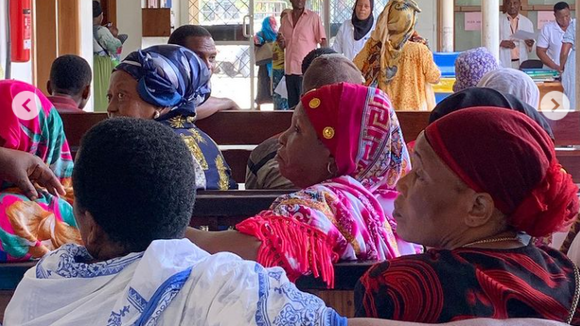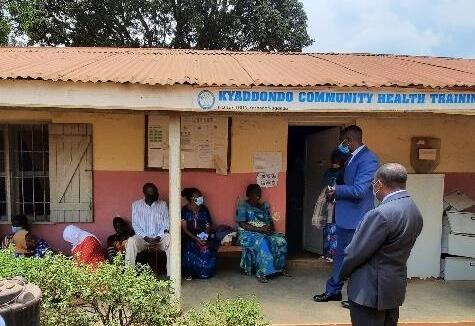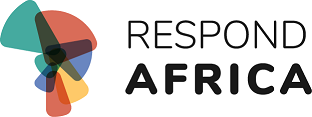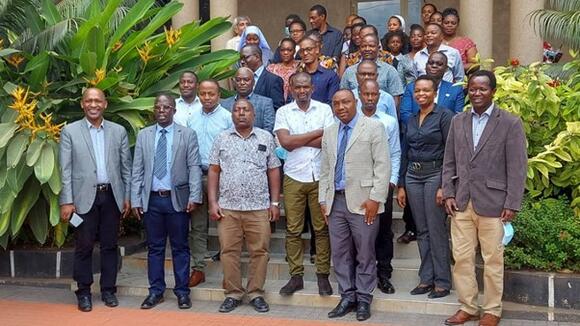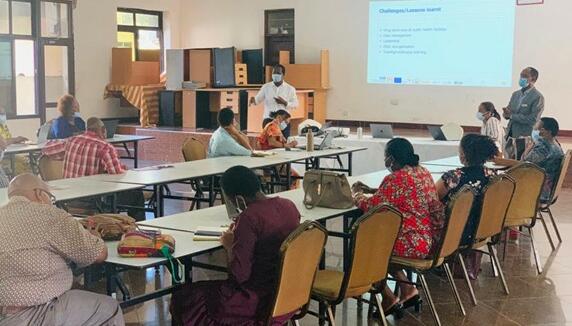
RESPOND-AFRICA: Stakeholder and Community Involvement
The patients' perspective
Panel discussions are planned which will mobilise a team of researchers, doctors and patients to discuss various themes on radio and TV. These discussions will include segments on what our research means, how to get involved and what it’s like to live with HIV, diabetes and/or hypertension.
In both Uganda and Tanzania, we are producing short films highlighting the patient’s perspective on living with chronic conditions.
Policy-makers
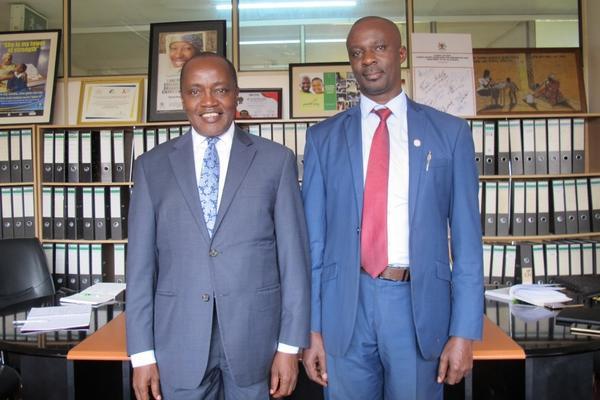
We engage regularly with senior programme managers and policy-makers in Africa so that our agenda is driven by local need.
Our links with policy-makers include the Heads of national control programmes for HIV-infection and non-communicable diseases in Tanzania and Uganda.
To support policy-makers to interpret evidence, we present the results of our studies in advance of publication.
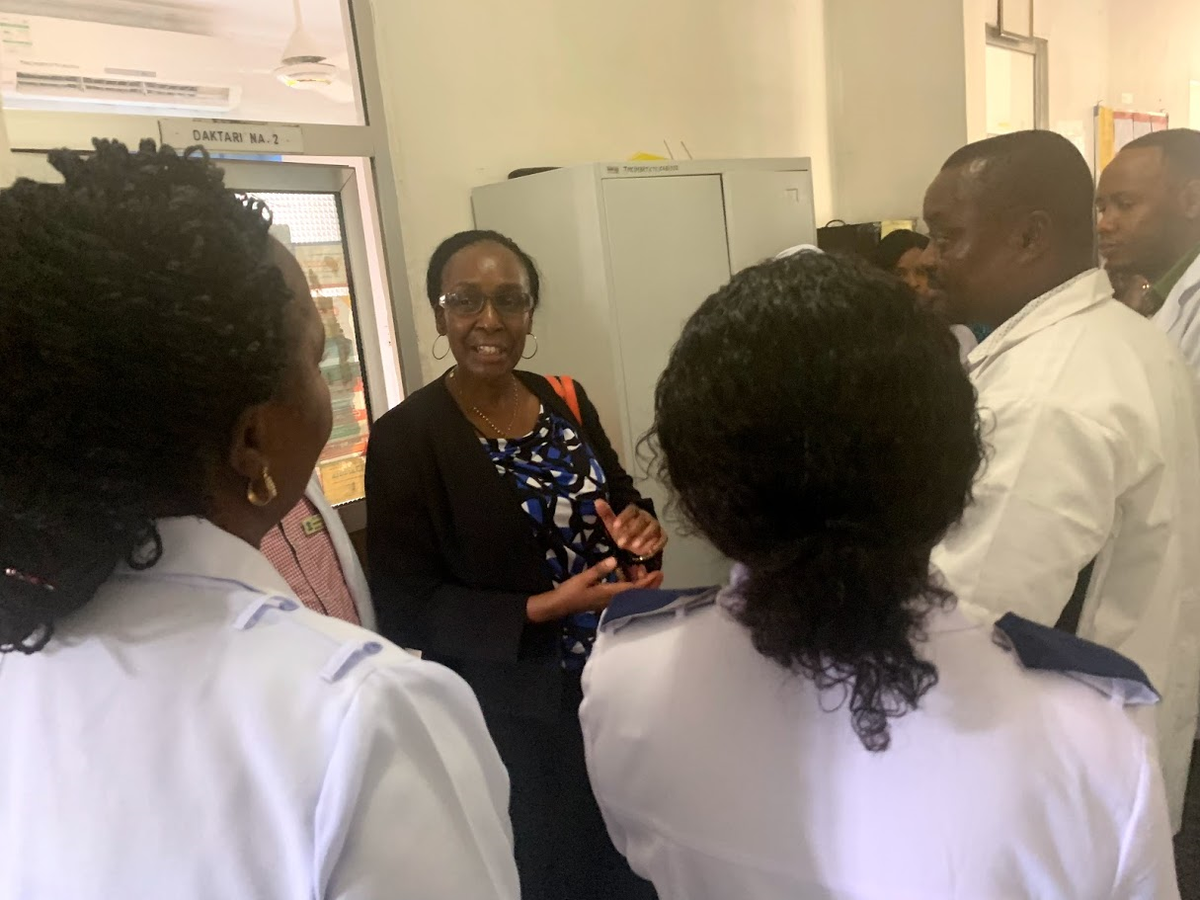
Patients and community leaders
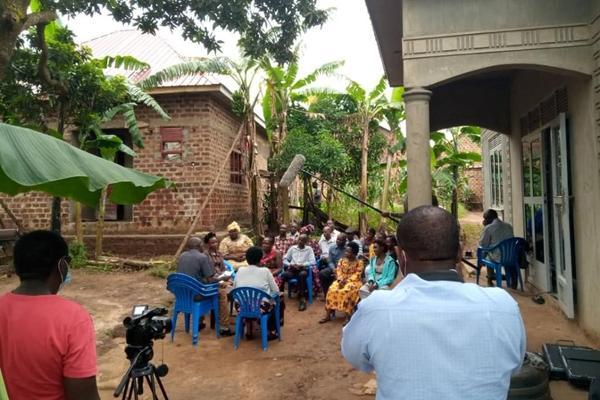
We work actively with representatives of patients and community leaders in both Tanzania and Uganda, testing out different ways of empowering these stakeholders.
We have focused on the following key questions:
- How should we empower patients?
- How do patients engage with health services?
- What issues do patients with chronic conditions face in accessing care?
- How can we enhance community involvement in our research?
Working with Hindu Mandal Hospital in Tanzania and TASO in Uganda, we have access to a network of over 34,000 community volunteers, as well as patient groups, healthcare providers, cultural and religious leaders and peer educators.
In Uganda, TASO has active drama groups within Uganda who write and perform plays on HIV-infection. Those groups have written new scripts to focus on HIV, diabetes and hypertension, as well as recording them for local radio and TV.
Expert Panels
In Tanzania, we have identified a group of expert patients (across the 3 diseases) who act as a key group to help advise us on research strategy and our communications materials.
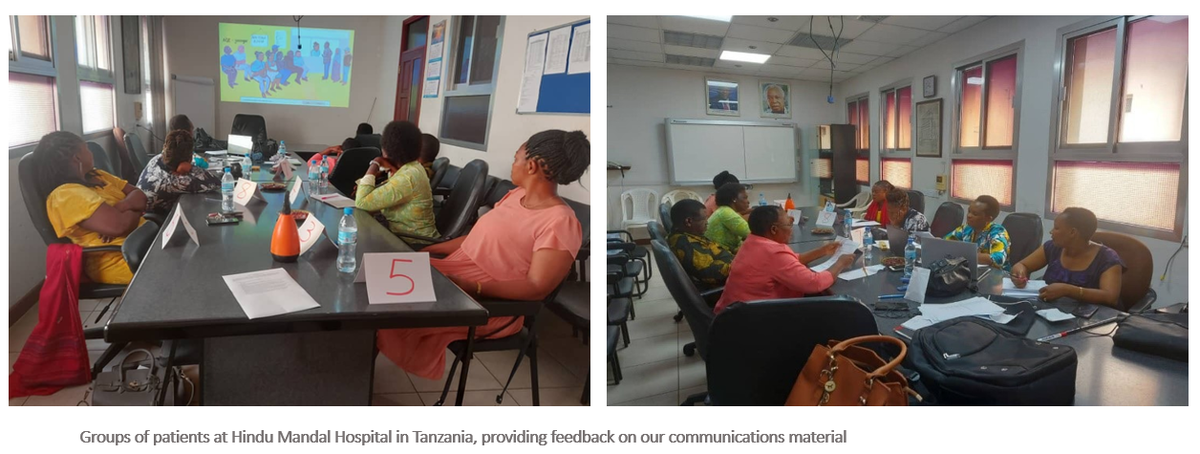
Relationships with Uganda Diabetes and Tanzania NCD organisations
Crucial to our community engagement work has been expanding our relationship with the Uganda Diabetes Association and the Tanzania NCD Alliance, who are supporting us to identify patients and expand patient representation on the local and international steering committees.
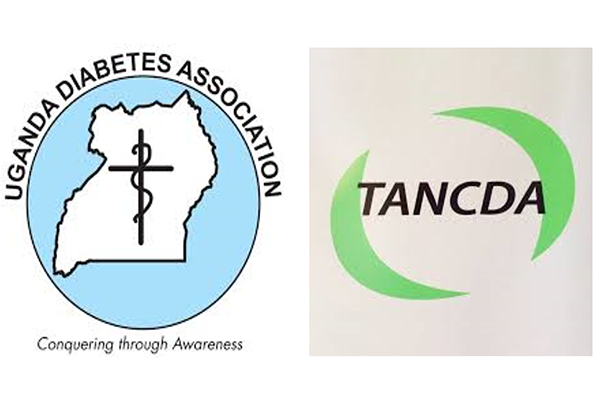
Co-designed communications materials
In order to present sometimes complex information in an easy to understand format, we have worked with local partners and patients to develop a range of posters and leaflets. These posters are placed in hospital waiting areas with leaflets available for more in-depth information. All materials are available in Kiswahili, Luganda, Runyankore and English.
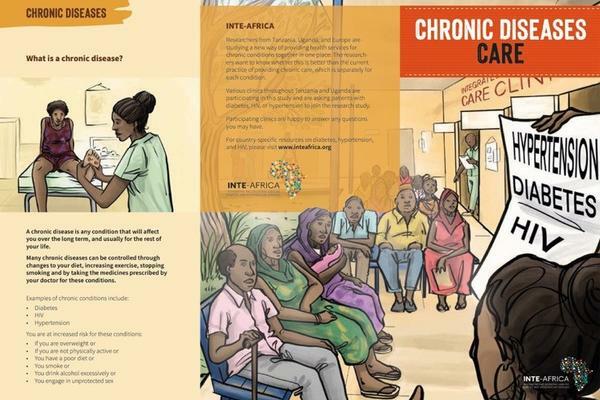
Patient Clubs
In Uganda, we have established patent clubs in research study sites which bring together patients with chronic conditions. These groups are self-directed, with a nominated Chairperson and often registered with the district authority. Patients become members through registration and use combined membership fees to purchase drugs for their chronic conditions if there are any shortages at the facility. These clubs often have more than 150 patient members.
Right: Diabetes and Hypertension Clubs at Wakiso health centre IV, Uganda
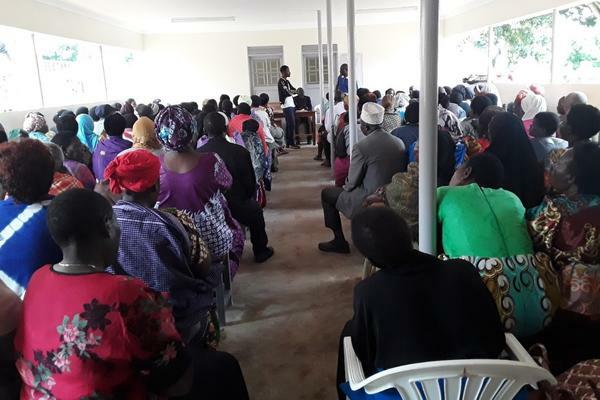
National Steering Committees
National steering committees meet every 3-4 months in Tanzania and Uganda. They comprise national disease control managers (for both HIV and for non-communicable diseases), district-level public health managers, civil society members, patient and community leaders and researchers.
A primary purpose of these committees is to engage regularly the users of the research to ensure that research addresses local needs and that findings are used by the key stakeholders.
Right: Uganda National Steering Committee. Left to right: Ssali Livingstone (TASO), Prof Stephen Watiti (representative HIV advocacy), Prof Jerome Kabakyenga (Mbarara University of Science and Technology), Dr Gerald Mutungi (Ministry of Health), Dr Nathan Kenya Mugisha ( https://walimu.org/team) , Dr Henry G Mwebesa ( Director General Health Services MOH), Prof Moffat Nyirenda (MRC/UVRI & LSHTM Uganda Unit), Dr Mina Ssali Nakawuka - (MOH), Dr Ivan Namakoola, Dr Josephine Birungi, (usual suspects), Dr Mastula Nanfuka (TASO), Ms. Moreen Asiimire (MOH).
Below: Stakeholders meeting in June 2020 in Tanzania aimed at disseminating preliminary findings of the MOCCA study and introducing stakeholders to the INTE-AFRICA project. A total of 41 participants who were drawn from the Ministry of Health, local government (regional and district levels), health facilities representatives, patient support groups and non-governmental organizations attended the meeting.
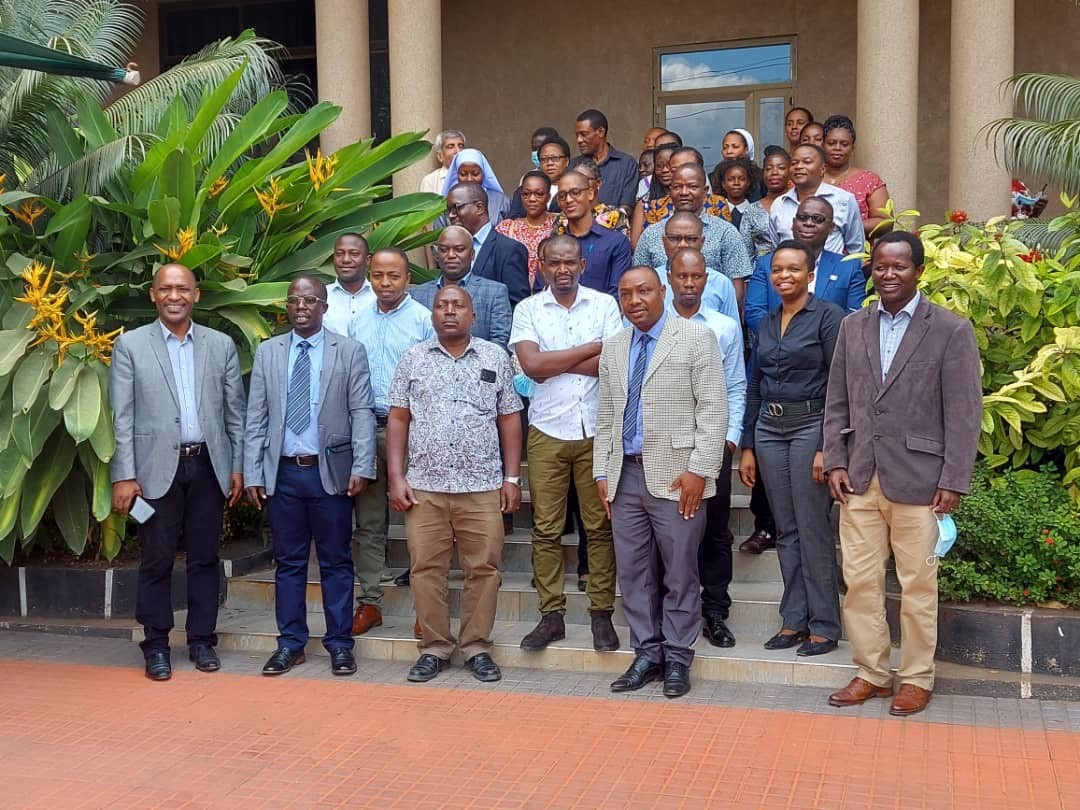
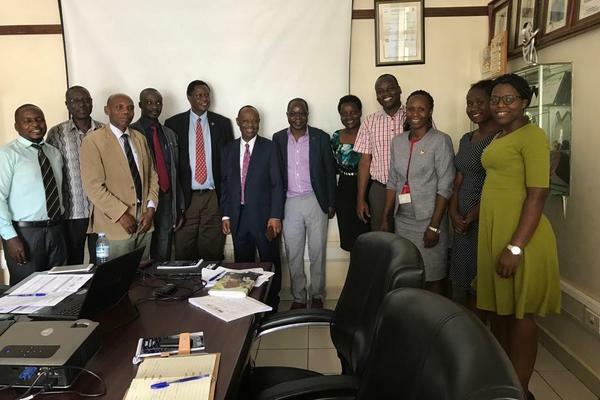
International Steering Committee
Strategic oversight for our research is provided through an international steering committee that is dominated by independent senior researchers, with equal representation from the North and the South.
Right: Members of the international steering committee visiting study sites in Uganda. The committee is chaired by Prof Peter Smith (2nd from right).
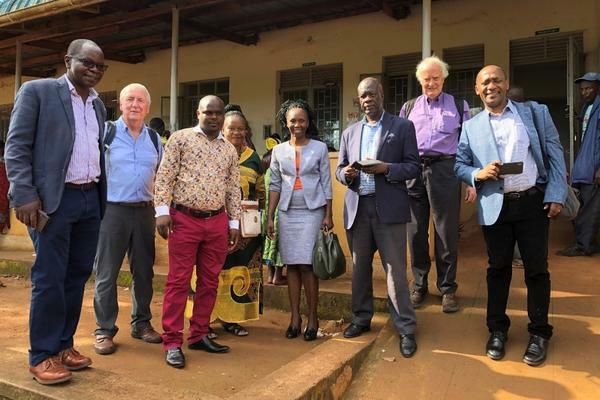
Even in COVID-19 times we maintain our links with the partnership through Zoom!
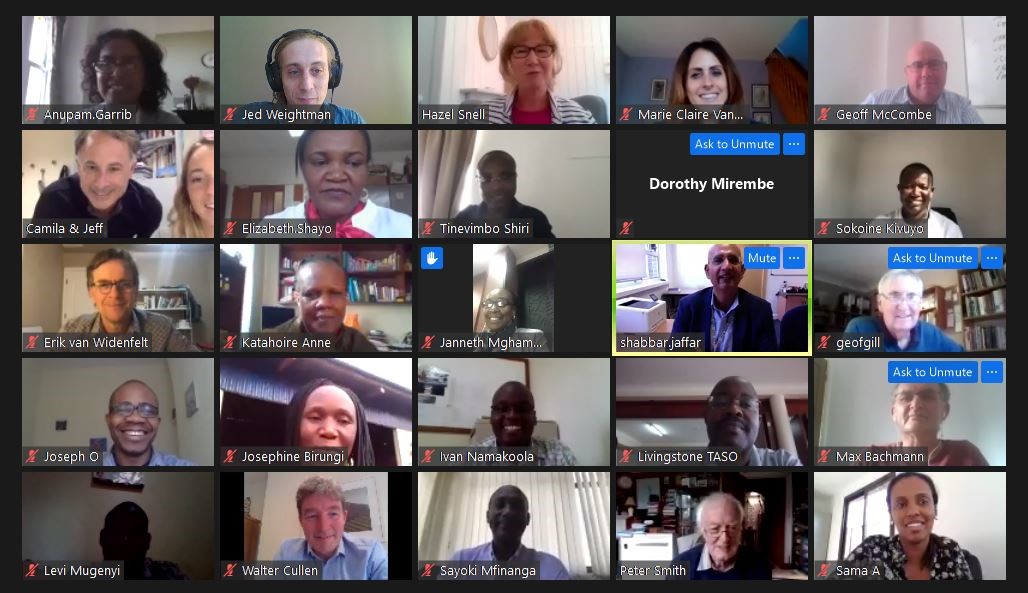
Stakeholder and Community Involvement blogs
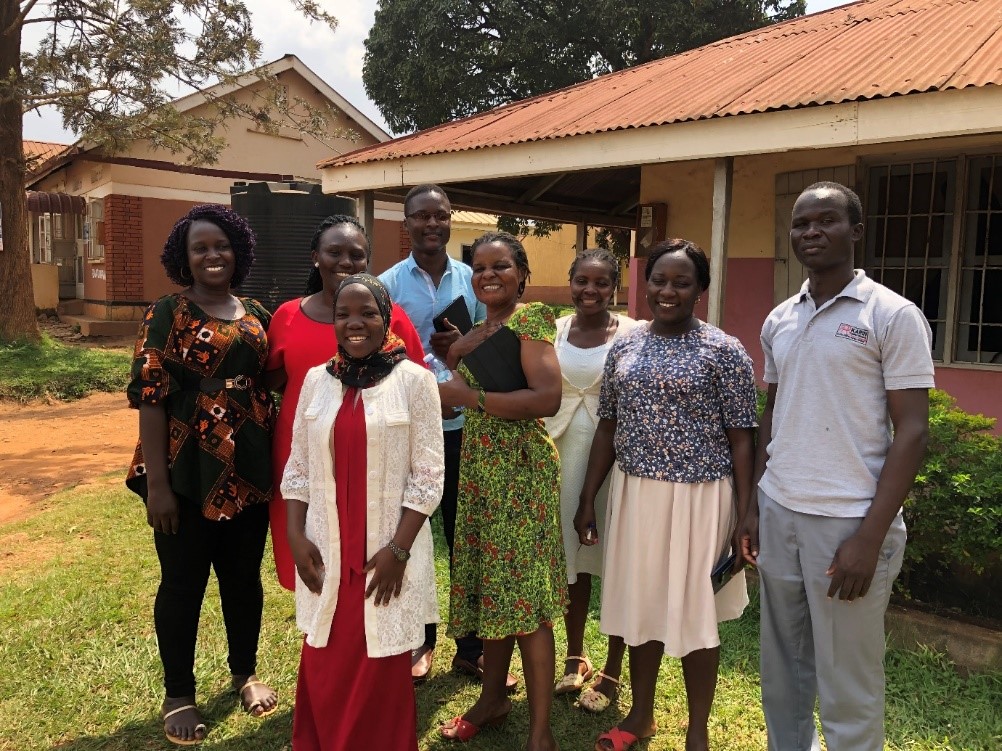
Our central focus is to conduct the highest quality research, and collect data relevant for policy, such as data on the quality of life, health economics and on the patient perspective, so that policy can be formulated quickly, depending on the findings. By involving a wide range of stakeholders and engaging with patients we are confident that our research agenda is based on local need.
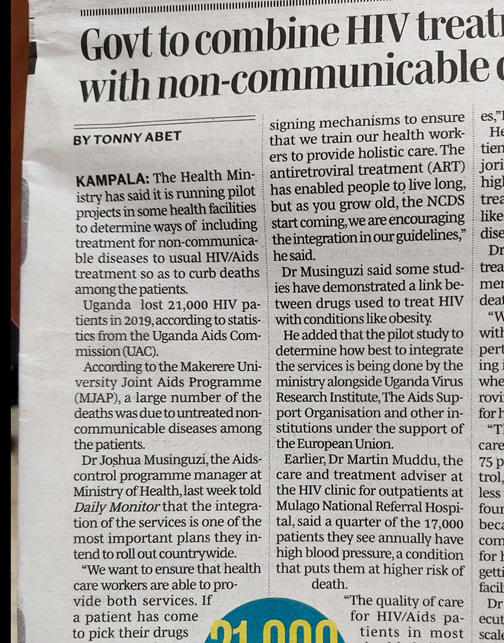
Effective engagement with policy makers ensures that our research findings can be used to inform policy, and also encourages further research into integrated care.
An article in a Ugandan newspaper referencing our work.

